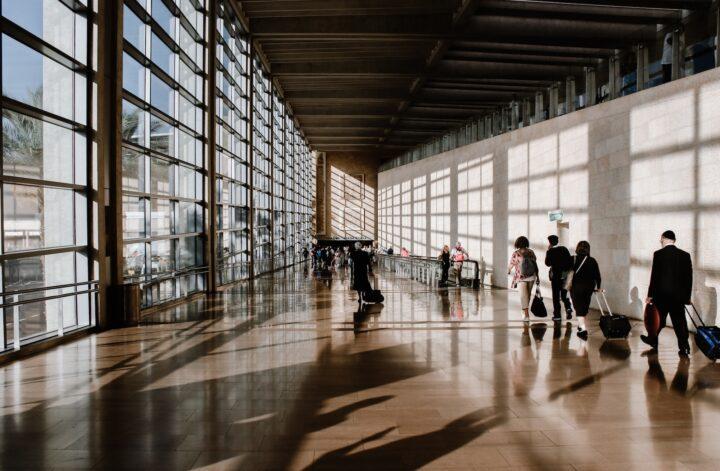Business trips can go a long way toward improving the longevity of your company. After all, they can strengthen your relationship with both partners and customers while also helping increase conversions and sales. However, they can also be expensive – which is why some business owners try to avoid them altogether.
With that in mind, here are some simple ways in which you can keep the costs down when planning a business trip.
Determine your budget ahead of time.
Budgeting is one of the easiest ways to cut costs for your business, as it helps you to become more practical and can reign in your spending. As a result, whether you are planning a business trip overseas or a little closer to home, determining how much you can spend ahead of time is crucial. After all, while this trip may help you to increase your revenue by bringing on board new clients, this is not always a guarantee – meaning you need to keep the costs as low as possible.
Remember, your budget should cover the costs of:
- Transport (Flights, trains, taxis etc.)
- Accommodation
- Venue hire
- Business meals
While costs can vary depending on a variety of factors, the average cost for business travel per employee is around £750 a year.
Book in advance.
Whether you’re finding a place to stay, or scheduling a flight, the earlier you book, the better. This is because you can shop around for different deals until you find an option that fits your budget. It also benefits your clients and customers, as it can help them better manage their own schedules.
Furthermore, being forward-planning shows clients that you are well-organised and detail-oriented, which may make them more inclined to trust you.
Use price comparison websites.
Price comparison websites, such as sky scanner, can also help you to stick within your budget when travelling for work. This is because they will automatically search for a variety of different flight options on your behalf, comparing the costs offered by different providers – saving you a lot of time and money. For example, they may suggest short layovers and connecting flights instead of flying directly, as this can sometimes help you save a considerable amount of money.
Travel out of peak season.
While your travel itinerary will likely be scheduled around your client’s rota, you can save a great deal of money travelling outside peak periods, such as times when schools are closed. This is because the more in-demand flights or hotels are – the more their prices increase. As such, travelling in the quieter months can save you a great deal of money. For example, one study found that “off-season travel can result in discounts of up to 50% on hotels and guesthouses,” as these spaces would otherwise remain vacant.
Furthermore, as you are not travelling for leisure, you’re less likely to be impacted by the factors that make this the “off-season,” such as slightly cloudier skies. However, that’s not to mean you won’t have fun while travelling – especially if you get to swap your usual office for a fancy hotel room!
Choose serviced apartments over hotels.
Accommodation costs will often take up a specific percentage of your business trip budget – however, that’s not to say that you don’t deserve to stay somewhere nice. After all, getting enough sleep is often critical to your success during a trip, as it means you’re well-energised and focused when heading into all-important meetings and events.
If you’re looking for budget-friendly accommodation that still meets your needs as a remote worker, you might want to consider staying in serviced apartments instead of hotels. After all, they are just as luxurious and comfortable, but often over a more ‘homely’ touch.
For example, they’ll likely have some sort of kitchenette in place, meaning you can cook your meals when travelling, reducing the amount of money you’ll spend on dining.
You can also ensure they have suitable working space within the room so that you can catch up on admin or rehearse your presentation before meeting clients. After all, working remotely from a standard hotel room (without a desk) could easily present a challenge.
Keep an eye out for loyalty schemes.
Many different airlines and hotel chains also have loyalty schemes in place to support those who travel frequently for work, allowing them to receive significant discounts whenever they travel. Keeping an eye out for these loyalty schemes can again prove to be useful, especially if business plans are taking up a lot of your rota for the rest of the year. You may also be able to unlock other benefits, such as discounts and restaurants or free upgrades, which can once again help you to keep your prices down when travelling.
Keep your receipts.
It’s important to note that many of the costs associated with business trips are tax-deductible, which can help make your trip a little easier to manage when sorting out your business’ finances. However, you should ensure that you keep a record of all of your spending and hold onto your receipts instead of throwing them away. This will make it much easier for you come tax season, as you won’t struggle to gather the relevant paperwork at the last minute.
Remember the benefits of business travel.
Many business owners within the UK are struggling with finances at the moment – likely due to the cost of living crisis. As a result, you may be avoiding business trips altogether in an effort to reduce costs and stay afloat. However, in some instances, it’s important to remember the benefits associated with business travel – as it’s often a worthwhile investment into your company’s financial future.
For example, one study found that “for every $1 spent on business travel arrangements, $12.50 is estimated to be recuperated in revenue.” This is because, as discussed above, business trips can increase sales conversions or help you develop an international customer base. As such, it’s an area in which your efforts (and money) will be well-spent!




